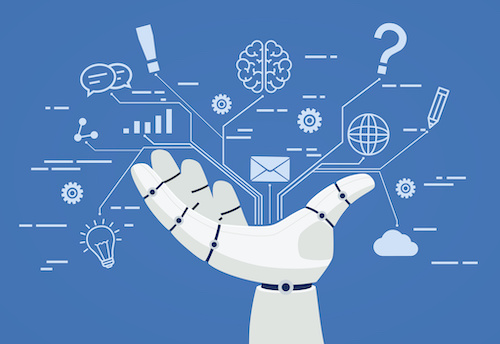Key points:
- The role of AI in education is varied, reshaping traditional teaching methods
- Learn about the role of AI in education
- Discover more about why AI in education is essential for learning
The role of AI in education is transformative, revolutionizing traditional learning approaches. From personalized instruction to administrative efficiency, AI is reshaping the educational landscape. Let’s explore how AI contributes to a more adaptive, personalized, and efficient educational experience for students and educators alike.
What is the role of artificial intelligence in education?
The role of AI in education is varied, reshaping traditional teaching methods. Personalized learning is a standout application, as AI analyzes individual student data to tailor educational content, accommodating diverse learning styles and pacing. Intelligent tutoring systems, powered by AI, provide real-time feedback and guidance, offering personalized assistance to students. These systems contribute to a more adaptive and interactive learning environment.
Additionally, AI automates administrative tasks, such as grading and attendance tracking, streamlining workflows for educators. Virtual assistants, driven by AI, answer student queries, enhancing accessibility and providing additional support beyond classroom hours.
Content creation is another significant aspect, with AI contributing to the development of interactive and immersive learning materials. Virtual labs, educational games, and simulations cater to diverse learning preferences, making education more engaging.
Furthermore, AI supports early intervention strategies by continuously monitoring student performance, identifying learning gaps, and enabling timely interventions. This proactive approach ensures that students receive the support they need to succeed, contributing to a more inclusive educational environment.
In summary, AI’s roles in K-12 education include personalized learning, administrative efficiency, virtual assistance, content creation, and early intervention, collectively enhancing the overall educational experience for both students and educators.
What AI helps in education
AI offers a multitude of benefits in education, and the future of AI in education will significantly enhance the teaching and learning experience. Personalized learning stands out as a key advantage, as AI algorithms analyze student data to tailor educational content, accommodating individual learning styles and pacing. Intelligent tutoring systems, driven by AI, provide immediate feedback and guidance, offering personalized support and fostering a more interactive learning environment.
Administratively, AI automates routine tasks such as grading and attendance tracking, allowing educators to allocate more time to interactive and creative teaching strategies. Virtual assistants powered by AI can answer student queries, providing additional support and enhancing accessibility.
AI also contributes to content creation, enabling the development of interactive and immersive learning materials such as simulations and virtual labs. These resources make education more engaging and effective.
Furthermore, AI facilitates data-driven decision-making for educators by analyzing student performance trends. This insight allows for the refinement of teaching methods, identification of areas for improvement, and the implementation of targeted interventions.
In essence, AI in education streamlines administrative processes, personalizes learning experiences, fosters interactive environments, and provides valuable data-driven insights, collectively contributing to a more efficient, adaptive, and student-centered educational landscape.
What is the main role of AI in education?
The main role of AI education tools is to personalize learning experiences for each student. AI achieves this by analyzing vast amounts of student data to understand individual learning styles, preferences, and strengths. This data-driven approach enables the creation of adaptive learning paths, where educational content is tailored to meet the specific needs of each student. Intelligent tutoring systems, powered by AI, provide real-time feedback and guidance, assisting students on their individual learning journeys.
Additionally, AI contributes to early intervention strategies by continuously monitoring student performance. It can identify learning gaps or areas of difficulty, allowing educators to provide timely and targeted support, preventing students from falling behind.
Moreover, AI helps in automating routine administrative tasks, such as grading and attendance tracking, freeing up educators’ time for more meaningful interactions with students. The personalization, adaptability, and efficiency brought about by AI in K-12 education contribute to creating a more student-centric, engaging, and effective learning environment that caters to the diverse needs of students at different stages of their educational journey.
How can teachers use AI in the classroom?
Teachers can effectively integrate AI tools for education into the classroom to enhance the learning experience. AI-powered adaptive learning platforms enable personalized instruction, addressing individual student needs and pacing. Virtual tutors, driven by AI, offer immediate feedback, supplementing teacher guidance. AI can automate administrative tasks, such as grading, allowing educators more time for interactive teaching. Teachers can leverage AI-driven educational games and simulations to make lessons more engaging and immersive.
Furthermore, AI assists in creating customized learning materials, tailoring content to diverse learning styles. Teachers can use AI to analyze student performance data, gaining insights for targeted interventions and differentiated instruction. Encouraging collaboration, teachers can deploy AI to facilitate group projects and discussions. Overall, incorporating AI in the classroom empowers educators to provide more personalized, efficient, and dynamic learning experiences for their students.
Conclusion
In conclusion, AI’s role in education is transformative, offering personalized learning, administrative efficiency, and innovative teaching tools. As AI continues to evolve, it promises a dynamic and adaptive educational landscape, empowering educators and enriching the learning experience for students across diverse educational settings.
- Classroom Learning - April 5, 2024
- Advantages and Disadvantages of Classroom Management - April 5, 2024
- What are Disadvantages of Classroom Management? - April 5, 2024

